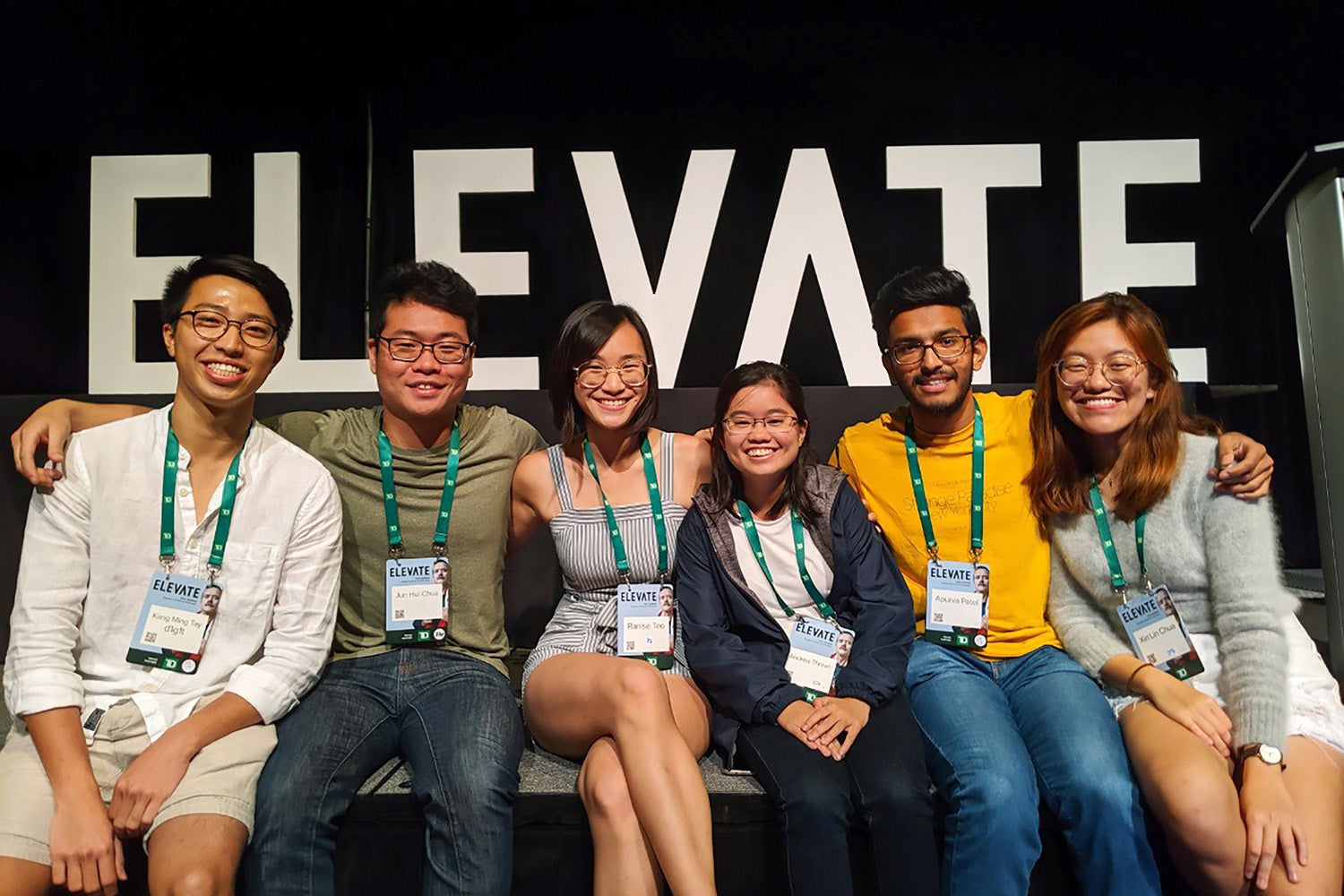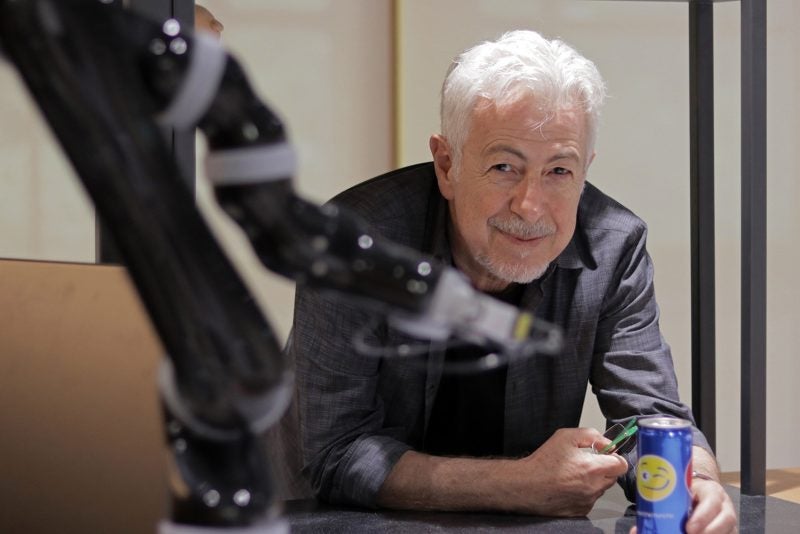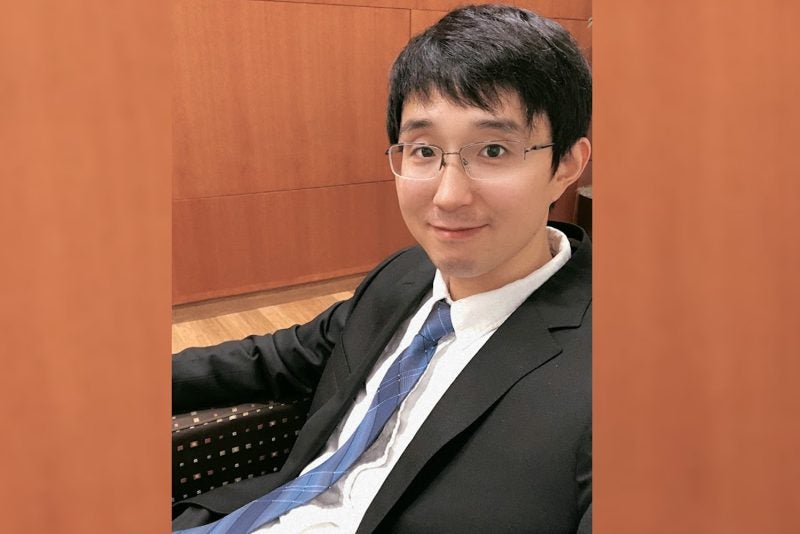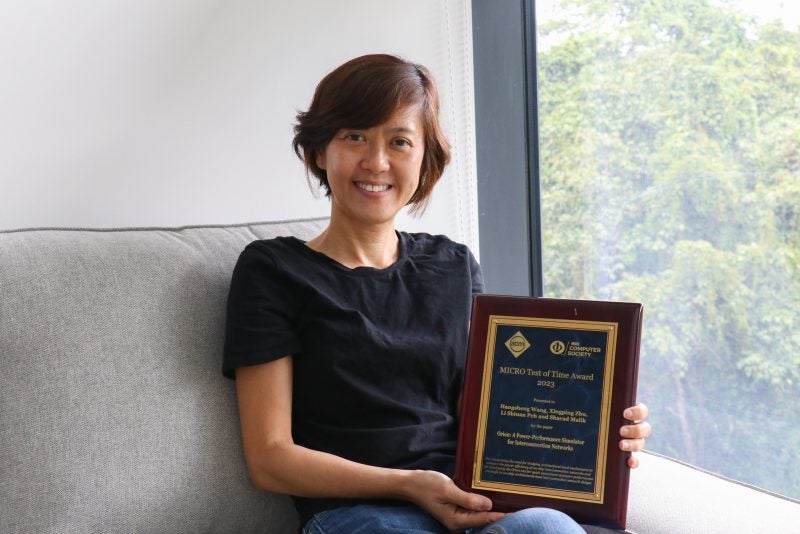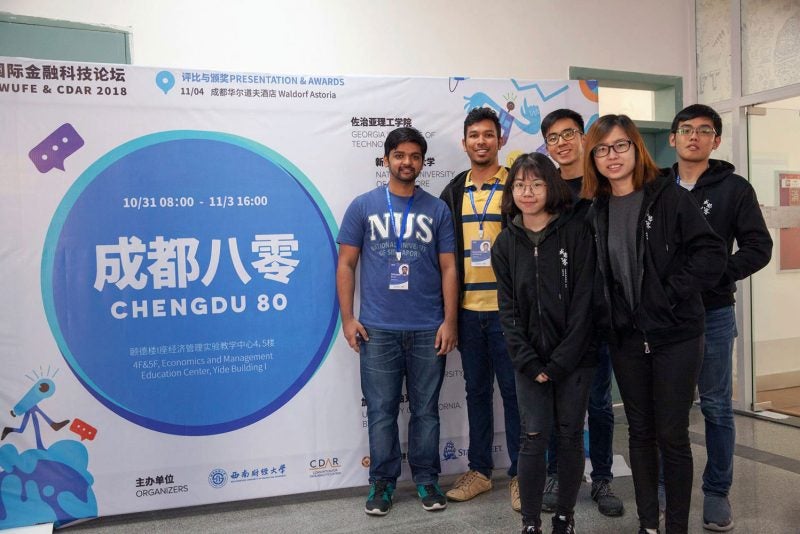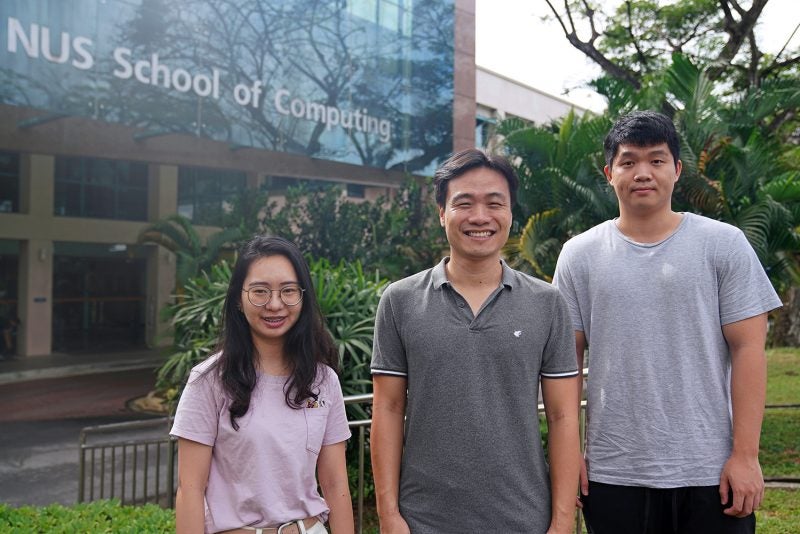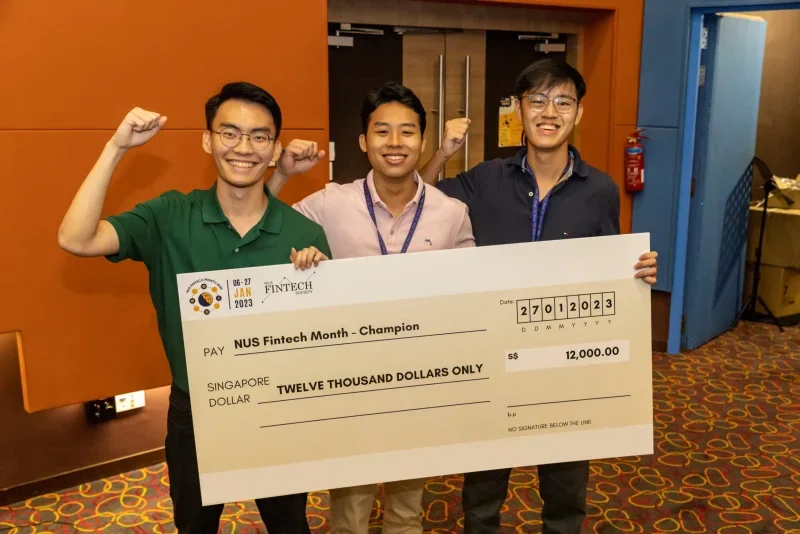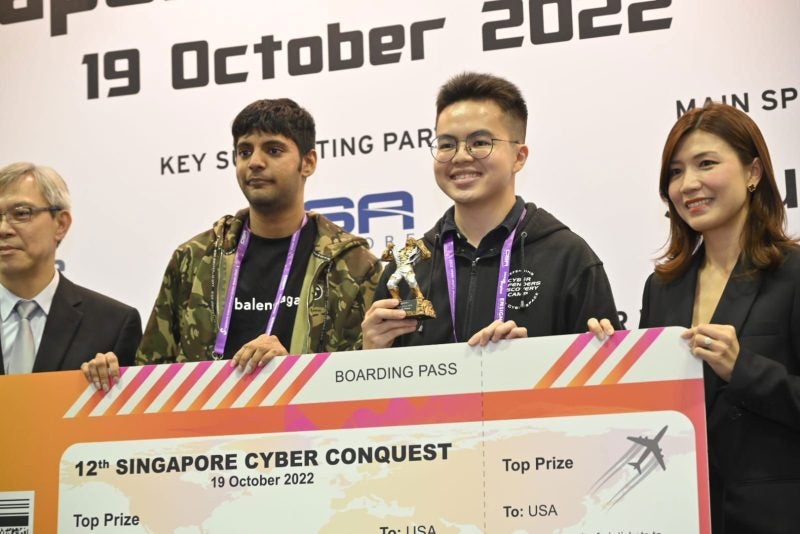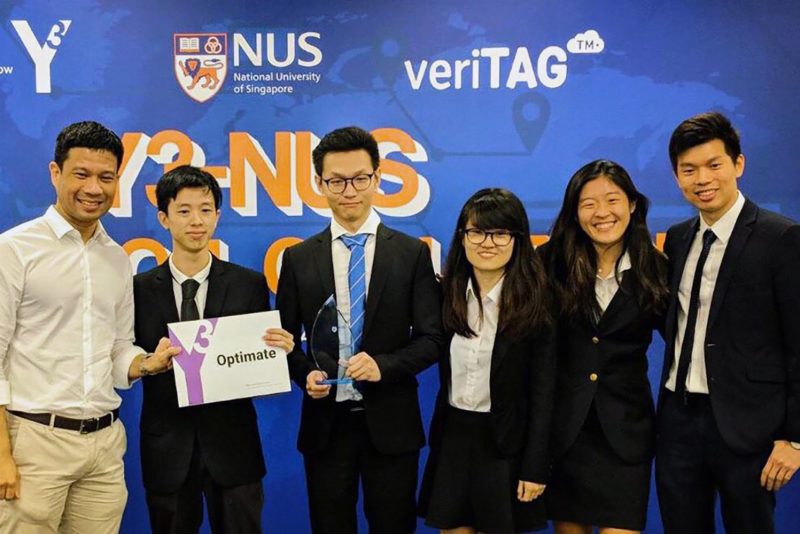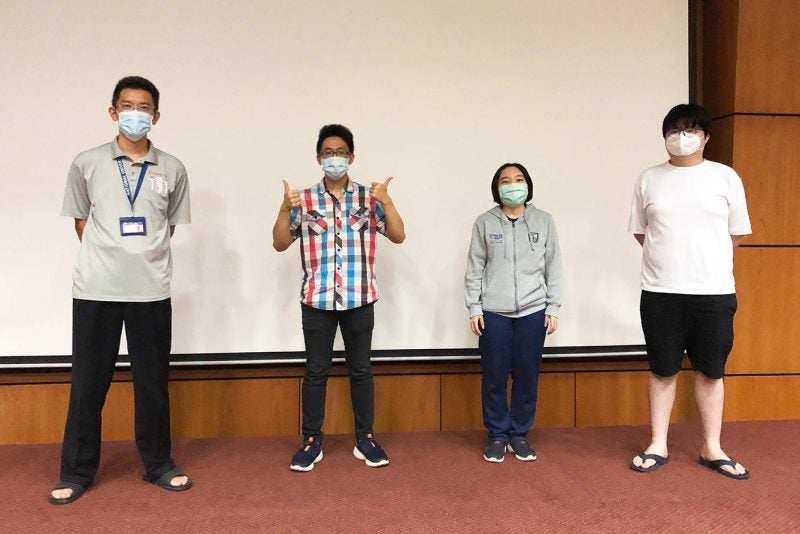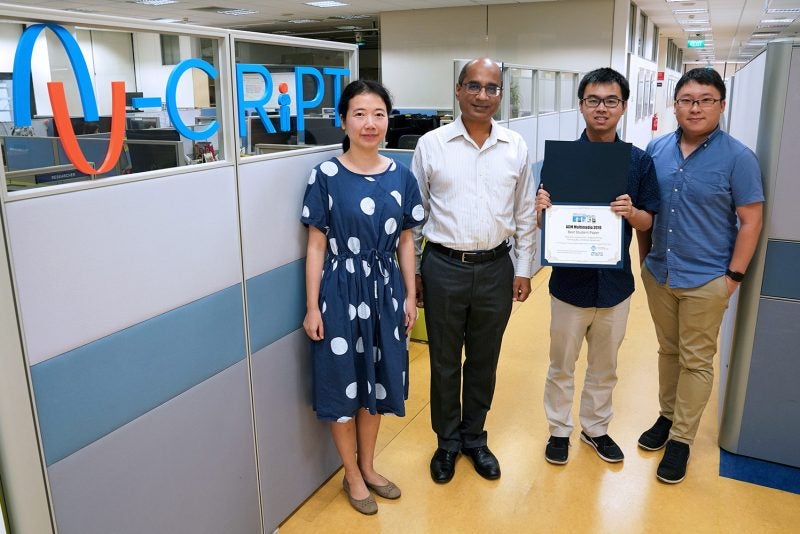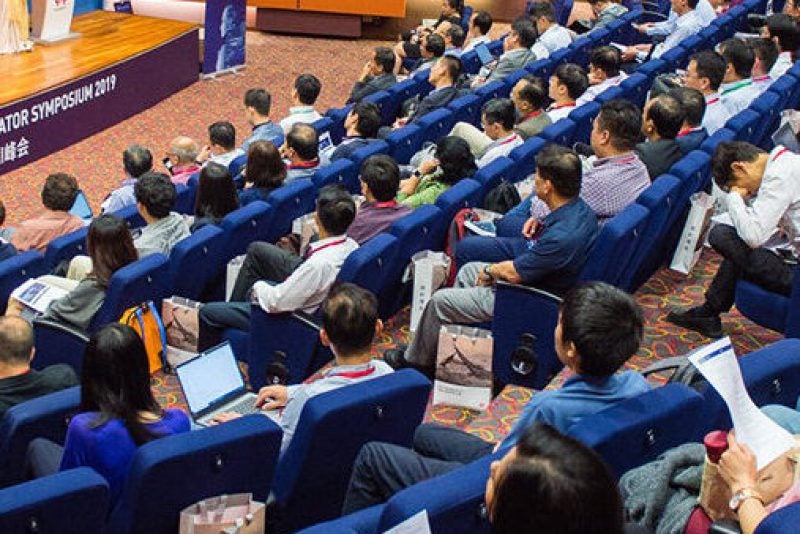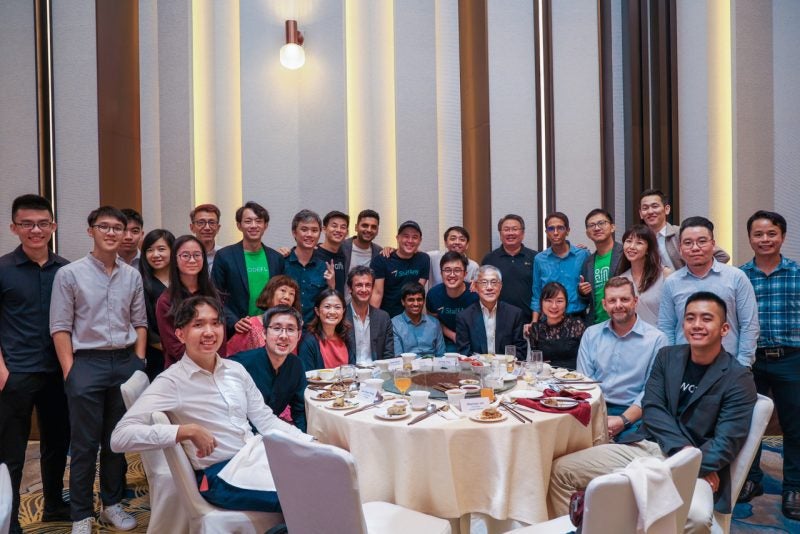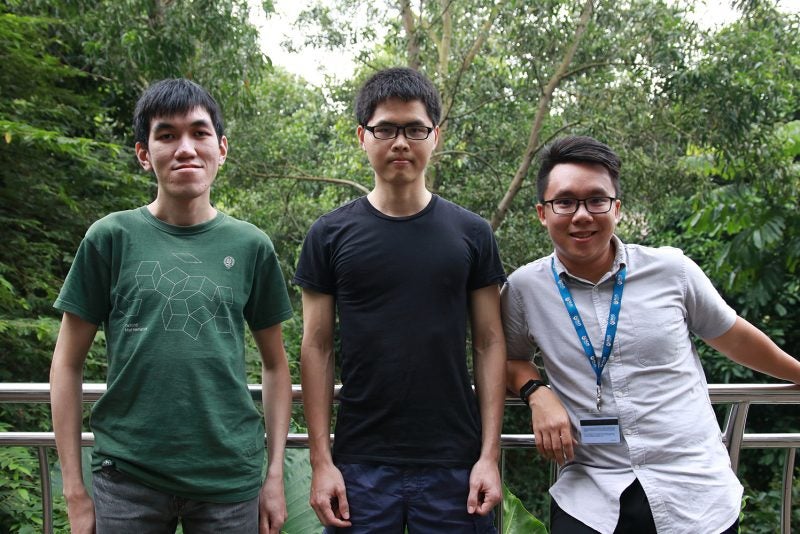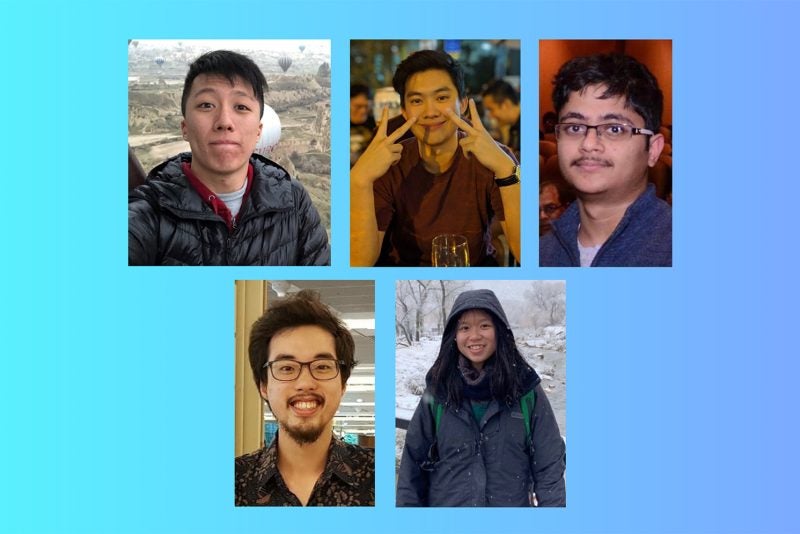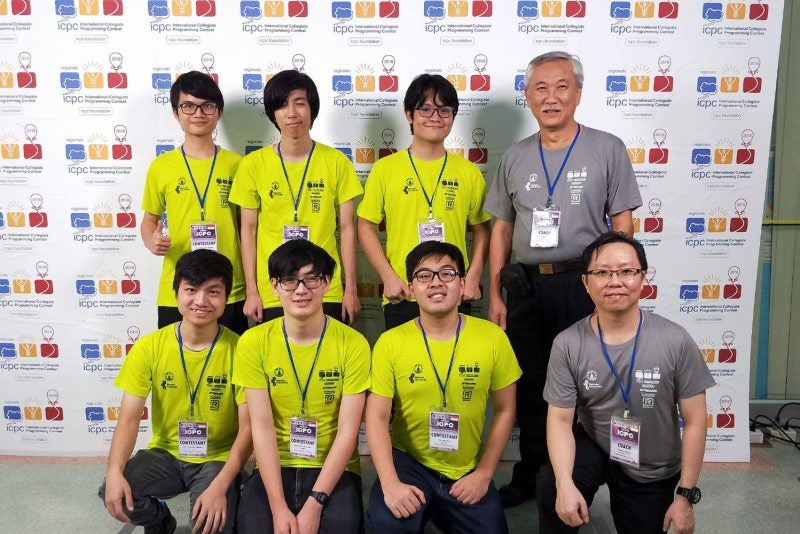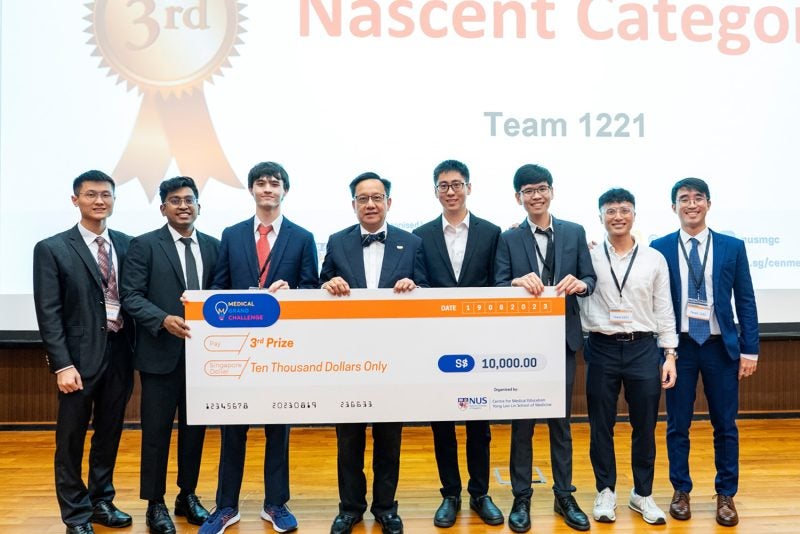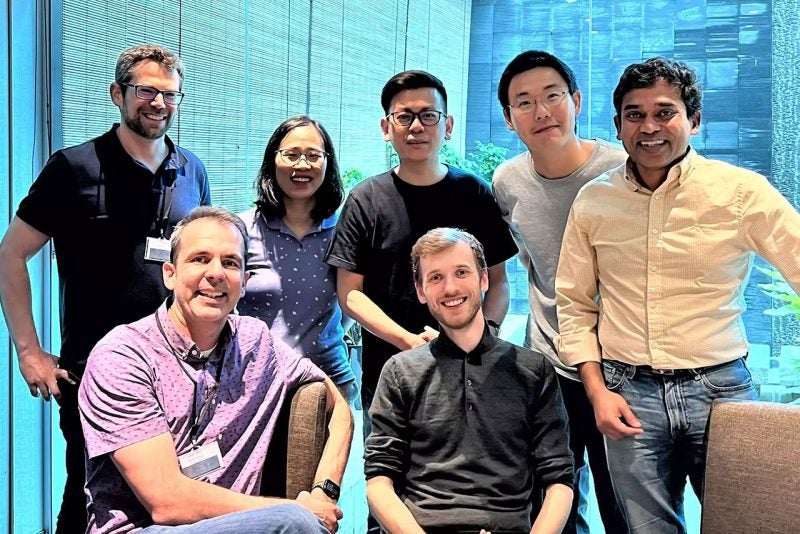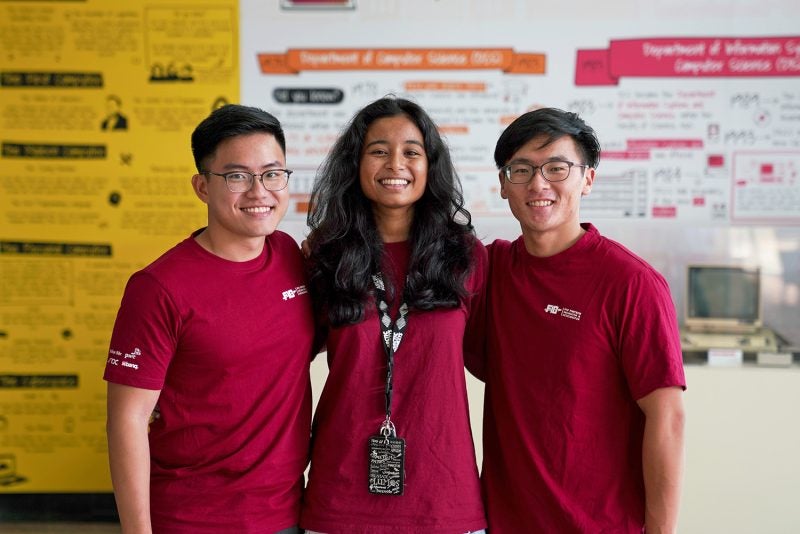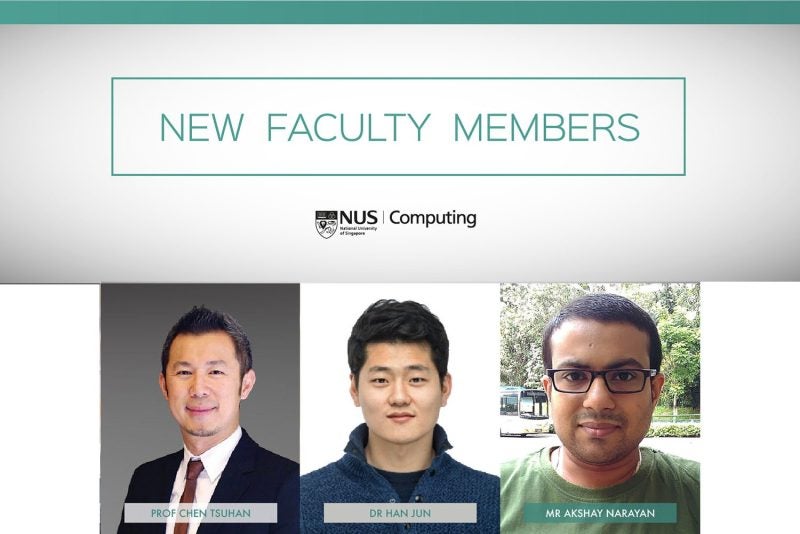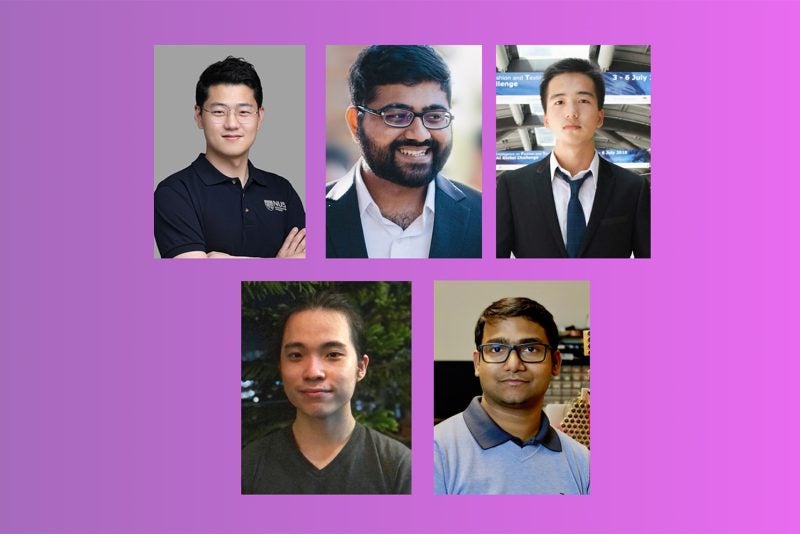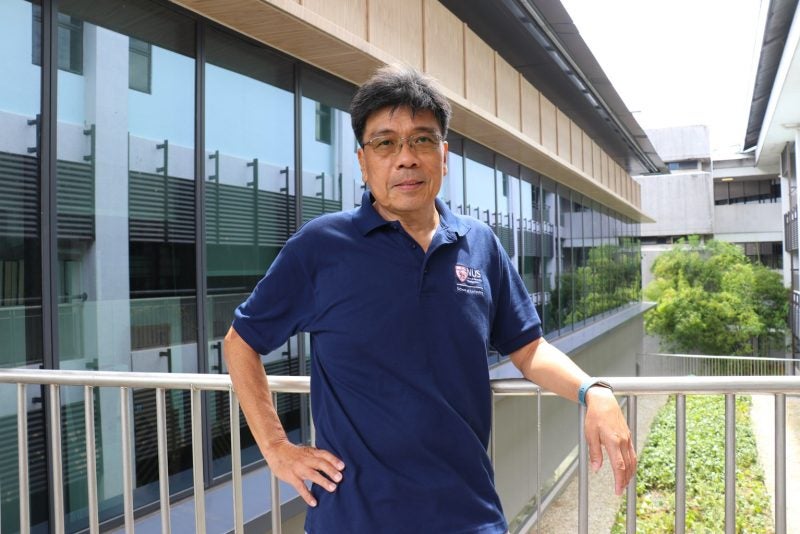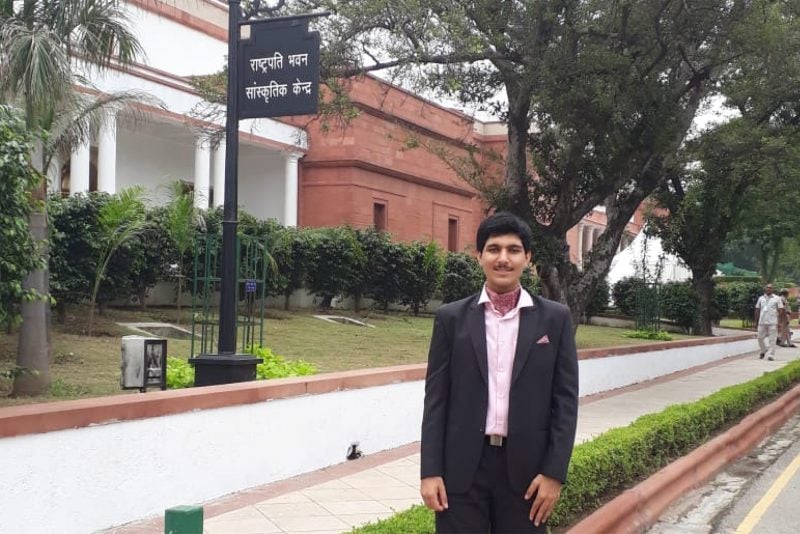25 September 2019 – NUS Computing students Chua Jun Hui (Computer Science, Year 4), Andrea Thniah (Information Security, Year 3) and Tay Kang Ming (Computer Engineering, Year 3) , and their team, won first place at the Elevate Tech Jam Hackathon held from 21 to 22 September in Toronto, Canada.
Jun Hui, Andrea and Kang Ming are currently in Toronto for their year-long NUS Overseas Colleges (NOC) programme. They partnered with their NOC counterparts, NUS Business School student Chua Xin Lin, NUS Faculty of Arts and Social Sciences student Ranise Teo and NUS Engineering student Apurva Patel to participate in the hackathon. A total of 74 teams competed in the competition. The NUS team won the first place prize of CA$3,000 in the Internet of Things (IoT) and Connected Living challenge – one of two challenges presented at the hackathon.
In this challenge, teams were asked to devise a plan to improve the consumer experience for Canadian telecommunications company Rogers. The NUS team chose to develop a mobile app that would guide users in the installation of their home telecommunications hardware, such as Wi-Fi modems and smart home devices. To create their mobile app, the team used computer vision and object detection techniques to differentiate between the cables needed for a Wi-Fi modem – cables such as the ethernet cable and coax cables. “We wanted to come up with a simple way to guide users in their set up,” said Kang Ming, on behalf of his team. “We narrowed down our solution to guiding users to set up their Wi-Fi modems since this was a problem we encountered when we first arrived in Toronto for NOC.”
With only had 30 hours to develop their idea, they ran short of time and were unable to complete their prototype. “We did not expect to win because our prototype was not fully functional and we felt that the competition from the other teams were very strong,” Kang Ming added. Despite the setback, the team managed to stand out among the competition due to their innovative idea. “The judges felt that our idea was really solving a business problem for Rogers and could result in significant cost savings for the company. Our app would cut the cost of manpower as there would no longer be a need for technical service workers to physically go down to a customer’s house to set up Wi-Fi modems,” said Kang Ming.
“For most of us in the team, this is our first time winning a hackathon in Toronto,” said Kang Ming. “This win would not have been possible without the feedback and moral support our team received from the other NOC team that participated in the hackathon.”

